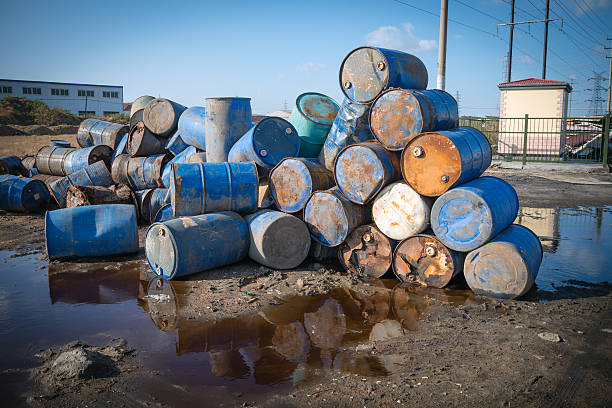A multisensory approach to pollution reporting
Published date: 05 September 2025

Work under way for new GRI Standards that encompasses air and soil pollution, noise, light and odor, and critical incidents.
GRI is developing Pollution Standards that will expand the scope of reporting to include air and soil emissions, noise, light and odor, and critical incidents. These crucial areas have until now received limited attention in established sustainability reporting. By widening the range of disclosures, the new Standards will seek to strengthen transparency on pollution.
The pollution project, commissioned by the Global Sustainability Standards Board, builds on Disclosures 305-6: Emissions of Ozone-depleting Substances (ODS) and Disclosures 305-7: Nitrogen Oxides (NOx), Sulfur Oxides (SOx), and other significant air emissions , and Disclosure 306-3: Significant Spills. The project will propose new requirements to achieve a more comprehensive approach to pollution-related impacts.
Pollution undermines biodiversity, human health and quality of life worldwide. World Health Organization analysis estimates that outdoor air pollution caused 4.2 million premature deaths each year, while soil pollution is widespread. Soil contamination threatens food security and ecosystem services, while noise and light pollution are often-overlooked factors, linked to social impacts such as sleep disturbance, cardiovascular problems, disrupted circadian rhythms and reduced wellbeing . By incorporating new disclosures on air, soil, noise, light and odor, and critical incidents, the Standards will provide the tools to better measure and address the pollution-related impacts.
Pollution is at the heart of the sustainability challenge, touching human wellbeing and health, ecosystems and economies alike. With these new Standards, we intend to widen the scope of disclosures to capture impacts that were previously under-reported. It will strengthen how these links are made visible, ensuring that organizations around the world cannot overlook the full breadth of their pollution impacts.
Thamar Zijlstra, GRI Senior Standards Manager, leading the Pollution ProjectA multi-stakeholder expert Working Group was appointed in December 2024 and is guiding the work to draft the new Pollution Standards.
The inclusion of air pollutant emissions within GRI Standards and guidance marks a significant advancement in strengthening the role of air quality in sustainability reporting. This development brings together the expertise of specialists from diverse backgrounds, nationalities, and disciplines, whose contributions are essential to ensuring the robustness and relevance of the guidelines. The Standard for Air Pollution is designed to be both comprehensive and practical, supporting organizations in addressing the impacts of air emissions while facilitating user-friendly reporting.
Eleni Michalopoulou, Research Associate, Stockholm Environment Institute, and member of GRI’s Pollution Working GroupAs the project moves forward in development, stakeholders worldwide will have opportunities to input, including a global public comment process on the draft Standards, which will kick off in early 2026. The timeline is to have these new GRI Pollution Standards published in mid-2027.